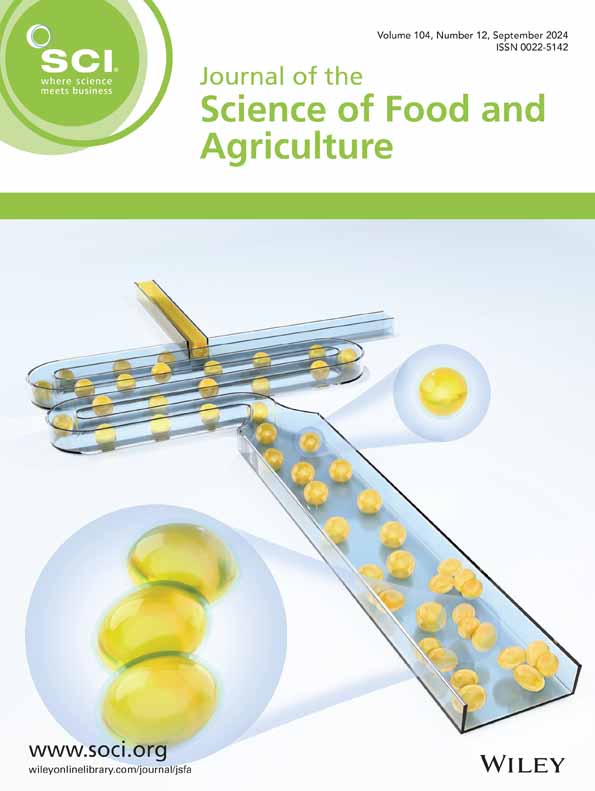Structure–property relationship of pea protein microgels as fat analogues in Pickering oil-in-water emulsions: effect of salt addition
Abstract
BACKGROUND
The design of plant-based microgels provides a platform for food ingredients to enhance palatability and functionality. This work aimed to explore the modifying effect of salt addition (KCl) on the structure of pea protein microgel particles (PPI MPs), on the interfacial adsorption and characteristics of formed emulsions as fat analogues.
RESULTS
Salt addition (0–200 mmol L−1) promoted a structural transformation from α-helix to β-sheet, increased the surface hydrophobicity (from 1160.8 to 2280.7), and increased the contact angle (from 56.73° to 96.47°) of PPI MPs. The electrostatic shielding effect led to the tighter packing of MPs with irregular structures and lowered the adsorption energy barrier. Notably, salt-treated PPI MPs could adjust their adsorption state at the interface. The discernible adsorption of PPI MPs with 200 mmol L−1 salt addition that possessed enhanced anti-deformation ability dominated the interfacial stabilization, whereas a relatively rougher stretched continuous interfacial film formed after spreading and deformation of 0 mmol L−1 MPs. A tribological test suggested that emulsion stabilized by MPs at 0 (0.0053) and 80 mmol L−1 (0.0068) had similar friction coefficients to commercial mayonnaise (0.0058), whereas a higher salt concentration (200 mmol L−1) lowered its oral sensation due to the adsorption layer and enhanced the resistance to droplet coalescence during oral processing.
CONCLUSION
Salt could be a modifier to tune the structure of microgels, and further promote the formation and attributes of emulsions. This study would improve application attributes of PPI MPs in the design of realistic fat analogues. © 2024 Society of Chemical Industry.

 求助内容:
求助内容: 应助结果提醒方式:
应助结果提醒方式:


